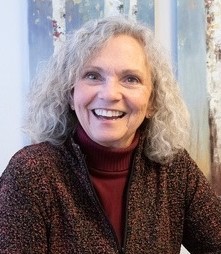Find your balance through the best and worst of times
Alice S. Kerber, MN, APRN, ACNS-BC, AOCN, AGN-BC Oncology Clinical Nurse Specialist

“It was the best of times, it was the worst of times…” Charles Dickens’ A Tale of Two Cities was a commentary on society related to resources and access which is applicable today. Every day (even before COVID-19) we read and hear about disparities in care, testing, work, food and shelter. Every day we work to advocate for those who have cancer, those who care about them and for them. The avenues by which we offer our support may have been changed, but it continues, and maintaining balance for ourselves through collaborations with established and innovative partners is vital.
Our society is uniquely prepared with the technology to maintain “social distancing” required today. Once thought to cause more detachment, these tools have actually simplified our ability to reach out to each other. Odd that now that we are more reliant on these modes of communication, we are missing the more tactile, in person interactions with others. Our human nature not only craves the physical contact often found in group settings, but we are accustomed to relatively unlimited mobility within our communities and social groups near and far. Life as we have known it has changed.
Many of us are mandated to be working from home, previously a luxury. Feelings of isolation, a sense of insecurity and opportunities for procrastination are common. Some people thrive in the virtual environment with increased productivity and calm while others find the change alone to be overwhelming. No one feels the same all the time, and it has only been a few weeks with no clear end in sight. We all need to practice patience with ourselves and others.
So, what can you do to help find your balance?
- Begin with what you know by setting your daily schedule. Include work times, break times and a breath of fresh air. Print out a calendar and track your accomplishments and plans as you would in the office.
- Embrace your resource field. Take time to appreciate what you have in your life, so that you will have the ability to appreciate the situations of others -- a coffee mug with that perfect handle, a comfortable chair, electricity, Wi-Fi, people who care about you, a job you love, etc. Arrange your space with easy access to what you need in order to get your projects done. Drink coffee, tea or water, be cognizant of the others who share your home and their expectations for interaction and sustenance.
- Take time each day to call, email or text someone just because you can – family, friends, or a colleague with whom the last connection was too long ago.
- Find the virtual platform that is most effective for you and your situation and learn the fun parts of it, like the ability to change the virtual background. (I was at the Golden Gate bridge during much of my recent call with the Georgia CORE staff!)
- Take the opportunity to get to know your coworkers better. Take a little extra time on a videoconference to check in with others about how they are coping with the situation. You probably don’t spend as much time talking with each other in the office, so this can be a real chance for team building.
- Give yourself a break and know that adjusting to change takes time.
- Use your resources. Georgia CORE has a wonderful section of this site devoted to survivors, caregivers, and health care providers with frequently updated and validated resources on a variety of topics. https://www.georgiacancerinfo.org/survivorship/
Finally, in this best and worst of times, allow us to continue to support each other through technology and human kindness. Please reach out if you need a shoulder, a listening ear or if you have ideas or suggestions for us.